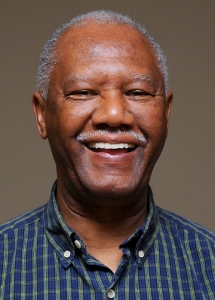 By Pr. Kelly Chatman
By Pr. Kelly Chatman
As a Black kid growing up in Detroit, I had no idea what a Lutheran was, let alone some German guy named Martin Luther. I was in 7th grade and I was on a venture to visit my new classmate Willie Wood’s church when I somehow got the directions wrong. (My wife would not be surprised to hear that.) I wandered into a Lutheran Church and no one there looked anything like Willie Woods. The entire Sunday school class was white, and I was embarrassed and wondering how I might make my exit.
This was back in 1963, and the tape in head was running reminding me that there are places where we do and do not belong. In my head it was very clear, I did not belong in that place. That is until two Sunday school teachers approached me. They escorted me to the front of the entire Sunday school and the Sunday school began to sing to me a song, “There’s a welcome here. There’s a welcome here. There is a Christian welcome here!” It was an experience I will never forget and one I will carry with me forever.
What’s that got to do with the Reformation? Everything, but I want to share with you a little bit about the journey I shared with our bishop and fellow pastors to Lutherland this summer.
I was one of 15 pastors from our synod invited to travel with our bishop to Germany. After we arrived in Berlin, we traveled by train to Leipzig where we were greeted by pastors and lay leaders from the church there. During our visit we learned about how, before the Iron Curtin (Berlin Wall) came down, life had been very difficult for people. There was a government force called the Stasis and it was invasive and oppressive in every way.
“Back then the system was built on something called indulgences. Today I believe we have a similar system in racism: Some people are encouraged to imagine God is more for them than others.”
The church emerged as a visible force of non-violent protest. The people of the Church of Leipzig would gather each week in the town square at St Nikolai Church to pray, sing hymns, and light candles.
Well, it got to the point that the Natazi (secret security) had seen about enough of those peaceful gatherings. The security forces gathered their soldiers equipped with their guns and they went to the town square ready to confront the protestors.
Imagine guns against candles, hymns, and prayers? Yep, you guessed it, candles, hymns, and prayers won. Maybe you didn’t guess it, but prayers, hymns, and candles resulted in a peaceful non-violent transition to a new future. The Berlin Wall came down in response to people of faith gathered each week to pray, sing, and light candles.
THE PEOPLE OF LEIPZIG, Germany, shared the time-honored witness of a monk (priest) named Martin Luther. 500 years ago, it was not the Natazi but a religious system holding the people hostage in their understanding of God. Religion had turned into a system where people were taught that you could somehow earn your way to God. Back then the system was built on something called indulgences.
Today we have a similar system in racism; some people are encouraged to imagine God is more for them than others. The Reformation challenges us to remember we all sin and fall short of the glory of God. Our baptism reminds us that by God’s grace we are restored to unity in Jesus Christ. We are imperfect, die each day to sin, restored to new life in Christ. In other words, “There’s a welcome here. There is a Christian welcome here!”
The Reformation is the anniversary of the date when Martin Luther nailed 95 Theses (arguments) on a church door, challenging us to acknowledge that God has already done the heavy lifting; all we do is in response to what God has already done. It is in response to God giving God’s life for the world God loves, we can sing, pray, and light candles.
“The Berlin Wall came down in response to people of faith gathered each week to pray, sing, and light candles.”
Because God gave God’s life on the cross, we march and walk for justice and peace. The Reformation was not and is not just Martin Luther. Many other cool people joined in the movement that birthed faithful expressions — the Moravian, Episcopal, United Methodist, Presbyterian, and other Protestant churches. Thank God for the witness of Lutherans who picked up the torch (candles) and gathered at the square outside St Nikolai Church to put their lives on the line, like that monk who started a reformation.
So, the Reformation goes on; we are not done yet. This is not the time to put down our candles. The church, our world, and our lives are still in need of reform-ation.
My prayer on this 500th Anniversary of the Reformation is that, as we gather in our congregations and we sing, pray, and light candles, we continue to share our light in those into those places made dark due to injustice, inequity, environmental neglect, and white supremacy. Blessings to us all on this 500th year of the Reformation.

